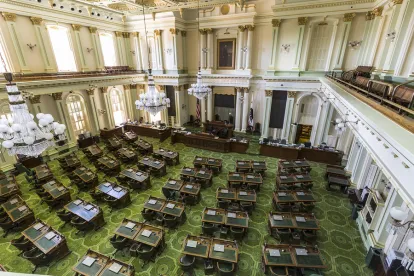On August 31, both houses of the California legislature passed and sent to Governor Newsom for signature the California Consumer Financial Protection Law (the CCFPL). Effective on January 1, 2021 if Governor Newsom signs the bill (which he is expected to do), the Department of Business Oversight will be replaced by the Department of Financial Protection and Innovation (DFPI). Much of the law comes directly from Title X of the Dodd-Frank Act, with a particular focus on consumer protection. While the DBO has authority to enforce specific laws, the focus of the DFPI will be on the kinds of products and services that are offered, without linking the agency’s authority to particular statutes.
Importantly, the law exempts national banks, banks chartered by California or any other state, existing DBO licensees (other than payday lenders and student loan servicers), and licensees and their employees that are acting under the authority of another state agency’s license, such as real estate brokers and their employees who are licensed under the California Real Estate Law. The law will apply to “covered persons,” which is defined as persons engaged in offering or providing consumer financial products or services, affiliates that act as service providers, and any service provider that engages in the offering or provision of its own consumer financial product or service. As in Title 10 of the Dodd-Frank Act, a “service provider” is any person that provides a material service to a covered person in connection with the covered person’s offering or providing of a consumer financial product or service. It is anticipated that the law will apply to, among others, debt collectors, fintech firms, credit reporting agencies, and merchant cash advance companies.
The law will give the DFPI the same authority relating to unlawful, deceptive or abusive acts or practices (UDAAP) that Title 10 of the Dodd-Frank Act gives to the CFPB. The DFPI will have the power to take enforcement action against covered persons for UDAAP violations, and will have the authority to issue regulations regarding UDAAP. The law also allows the DFPI to bring proceedings pursuant to provisions of Title X of the Dodd-Frank Act authorizing state regulators to enforce Title X and any regulations promulgated by the CFPB pursuant to Title X. The DFPI can bring these proceedings against both covered persons under the law as well as existing DBO licensees, but the DFPI will have to give advance notice to the CFPB if it relies on this authority to bring actions against existing licensees.
The law authorizes the DFPI to prescribe rules defining UDAAP, which will apply to covered persons, but the DFPI must interpret “unfair” and “deceptive” in accordance with California Business & Professions Code Section 17200 and cases interpreting that provision. “Abusive” is defined in the same way as under the Dodd-Frank Act, and requires the DFPI to interpret the term consistently with Title X or if inconsistent, in favor of greater protections and more expansive coverage.
In the only provision of the law that does not concern consumers, the law authorizes the DFPI to define UDAAP in connection with the offering of commercial financing or other financial products and services to small businesses, nonprofits and family farms.
The DFPI is authorized to bring a civil action or an administrative proceeding for a violation of the CCFPL, a rule or final order, or a condition imposed In writing by the DFPI. The DFPI will also have the authority to issue desist and refrain orders. There is a four year statute of limitations from the date a violation is discovered for civil actions under the CCFPL, which is one year longer than under Title X of the Dodd-Frank Act. Like the CFPB, the DFPI may seek broad relief for UDAAP violations, including rescission or reformation of contracts, refunds, restitution, disgorgement, compensation for unjust enrichment, damages, injunctive relief and civil money penalties.
Separately, the California legislature passed a law on August 31 requiring debt collectors to be licensed.



 />i
/>i

